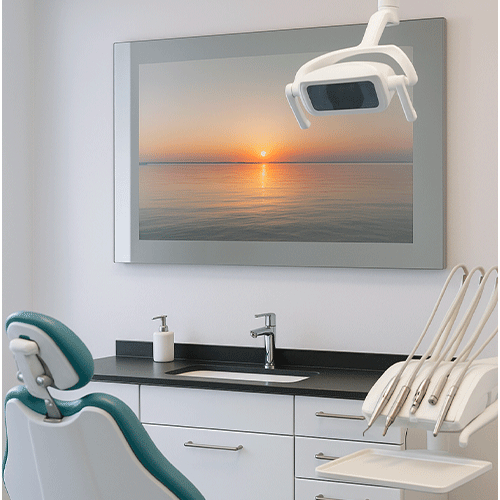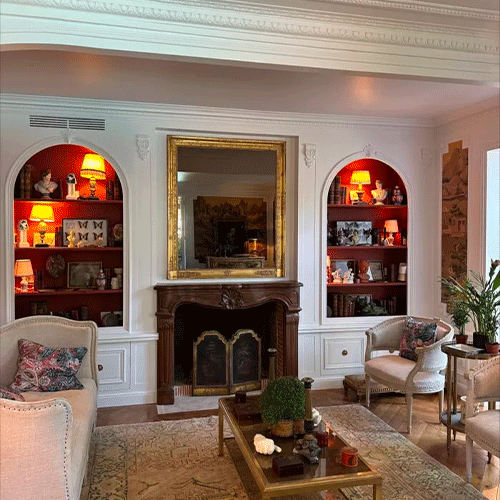Netflix, Amazon Prime Video, MyCanal, etc.: Make the right choice to offer streaming like at home!
In recent years, the main players in the streaming industry have been vying for subscribers with increasingly diverse offers.
The health crisis, successive lockdowns, and the closure of cinemas and theaters have intensified the interest of the French in streaming platforms.
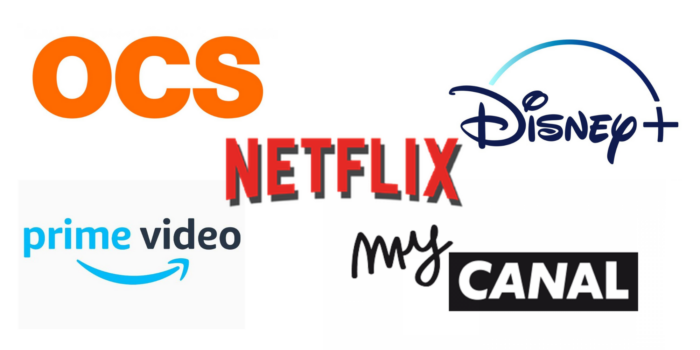
Film releases occurring online rather than in theaters have also contributed to this trend.
Today, more than 84% of French people subscribe to a streaming application, with Netflix leading the list.
However, it is becoming increasingly difficult to settle for just one platform, given the numerous options available for all ages and tastes. Additionally, traditional TV channels (TF1, Arte, M6, Canal, etc.) now offer their own applications, making the offering even broader and more dynamic. It is thus crucial to keep up with these changes to stay current and provide an optimal streaming experience.
Faced with the multitude of streaming platforms, how can hoteliers offer a broad enough entertainment selection to satisfy the desires of all their guests (children, teenagers, and parents)? What technical solutions are available today? Which one offers the best cost, features, and security balance?
Here is an overview of market solutions to make the right choice.
A Smart TV with streaming apps integrated into the manufacturer’s interface
Advantage
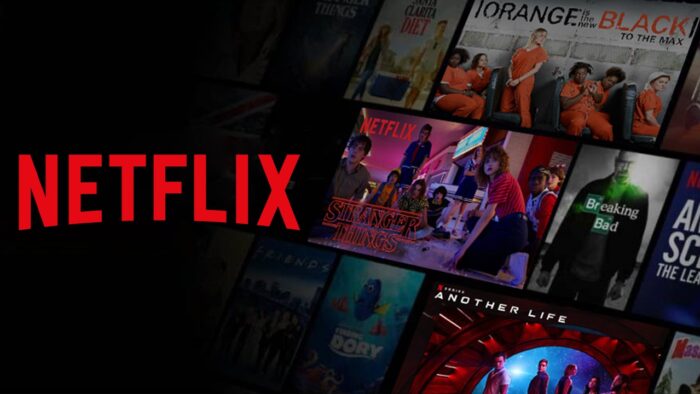
At home, usage is simple: just click the “Netflix” button on the remote to access the app and log in with your personal account.
Disadvantage
However, these smart TVs are designed exclusively for home use, which presents a significant limitation. This solution is not suitable for hotels, where guests change daily. If a guest forgets to log out of their account, their history will not be automatically deleted. As a result, the next guest can access their account and view all their history, which poses serious data security and GDPR compliance issues.
Furthermore, the previous guest might face issues at home, as they could be blocked from accessing services like Netflix or MyCanal. These platforms limit the number of simultaneous connections, potentially causing dissatisfaction. Additionally, logging back in with your credentials can be challenging. Often, we forget our credentials after saving them on our devices.
Moreover, there are other streaming apps not integrated into the TV, such as those specialized in children’s content, sports, or news, which compete with Netflix. In these cases, smart TVs also show their limitations.
A TV screen with built-in Chromecast

In 2013, Google introduced Chromecast technology, which allows you to stream apps from your phone to a TV screen (YouTube, Netflix, beiN Sports, etc.). This small accessory, sold separately, plugs into any TV model equipped with a USB port. The Chromecast must always be connected to the same Wi-Fi network as the smartphone launching the content. Today, some manufacturers offer next-generation TVs with Chromecast built into the television, making it physically invisible.
Advantage
Again, this innovation was designed solely for the consumer market, with the advantage of not accumulating equipment at home.
But in hotels, this technology poses problems in terms of comfort and security of use.
Disadvantage
One of the main disadvantages is that the user must juggle between a temporary Wi-Fi network for Chromecast and the hotel’s Wi-Fi network for all other uses. Indeed, it is the TV that generates the Wi-Fi network to which the user connects their smartphone. They then have to switch from the hotel’s Wi-Fi to the TV’s each time they want to stream content on the big screen, which is a major barrier to using these TVs.
Moreover, this poses serious security issues for hoteliers. When a TV generates a Wi-Fi network for the room’s user, the guest in the next room can also connect to this network and project their content in the adjacent room, creating potentially problematic situations.
Furthermore, the quality and stability of the Wi-Fi network generated by the TV are not optimal.
The user will often have to reconnect to the Wi-Fi while watching their series or match, which is particularly unpleasant in the middle of a broadcast.
The hotel Chromecast dongle behind the TV
In this case, the Chromecast is plugged behind any TV model, whether smart or not, and connected to the hotel’s Wi-Fi. For the guest, the use is simple: connected to the hotel’s Wi-Fi, they just need to scan the QR code displayed on the TV. They can then launch the series of their choice from their device and enjoy it safely. Once checkout is completed, all their history is automatically erased, ensuring perfect compliance and security.
The hotel Chromecast dongle behind the TV is thus the ideal solution to meet hotel needs.
The hotel Chromecast dongle installed behind the TV is therefore the best-suited solution for all types of hotels.
Ease of Implementation: This compact device easily plugs behind the TV without requiring any cabling work. Additionally, it does not require an investment in smart TVs, allowing hoteliers to retain their existing TV inventory.
Universal Compatibility: Chromecast is compatible with all current streaming applications. For those to come, it is essential that they are compatible with Google’s technology to remain competitive. With Chromecast, hoteliers benefit from an evolving solution that meets guests’ needs and desires in real time.
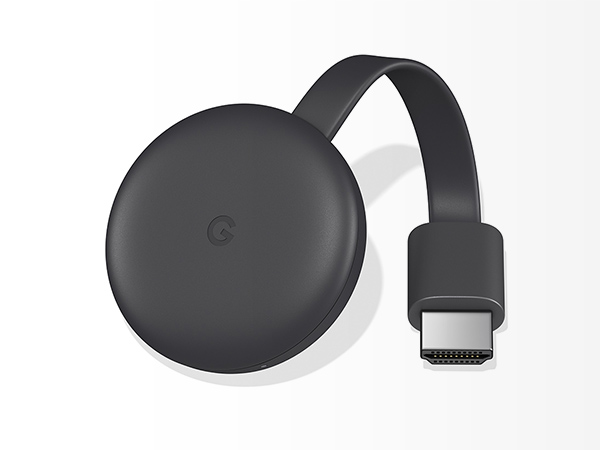
Essential Condition for Hotel Chromecast: Security
However, it is not enough to just buy Google Chromecasts and plug them behind each TV. Otherwise, you will encounter all the problems of a solution not designed for hotels: series projected on the neighbor’s TV, for example. For this reason, Passman’s R&D teams have developed the hotel Chromecast. Each Chromecast is pre-configured on a server, ensuring remote security and monitoring.
This server automatically generates the QR connection codes on the TVs, essential for pairing with the correct Chromecast. Thus, there is no longer any risk of connecting to the neighbor’s TV. Once the content is launched on the TV, the user can resume normal use of their device (calls, emails) while remaining connected to the hotel’s Wi-Fi.
Additionally, each deployed Chromecast is equipped with a specially designed anti-theft device. By adapting Google’s technology to the security requirements of collective buildings, this solution can be deployed with complete peace of mind by hoteliers.
Prerequisites for Offering Netflix in the Room:
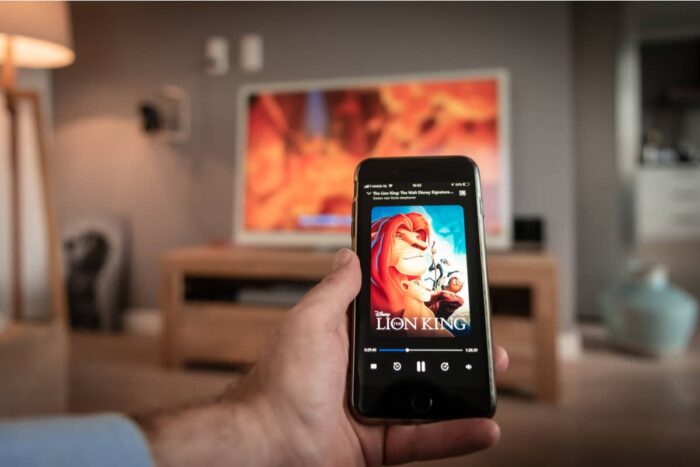
After addressing the essential security conditions in a hotel environment, it is crucial to consider another indispensable factor for the comfortable use of Chromecasts: Wi-Fi quality. Since both the Chromecast and the user must connect to the hotel’s Wi-Fi network, it is imperative to have a fast and uninterrupted connection. This is why it is essential to offer ultra-high-performance Wi-Fi, even during peak usage times.

